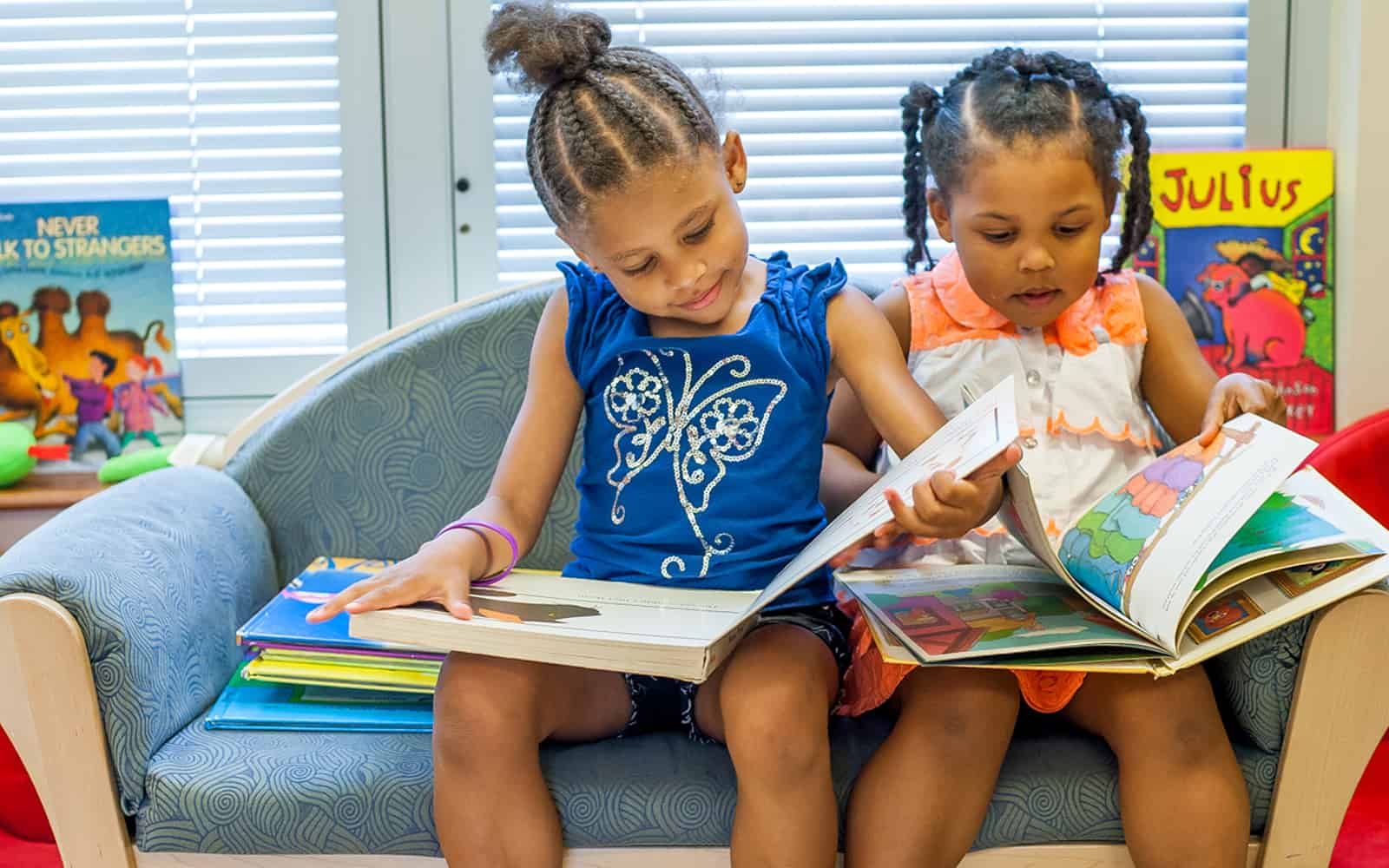Through just this one simple act you are bonding with your child, inspiring a love of reading—and are helping them develop strong early language and literacy skills that will become the foundation for their future learning and success. In fact, studies show that reading aloud is a primary driver of young children’s early language development.

12 Tips to Boost Early Literacy
Check out our early literacy tips to learn how to help your child develop a habit of reading.
Stay Connected
Sign up to receive news, helpful tools and learn how you can help our youngest learners.
To help you and your child get the most out of your storytime, here are 12 early literacy tips from our early learning experts at Start Early and our Educare Chicago school:
- Start early. Reading to babies is important for healthy brain development and lays the foundation for language and writing skills.
- Make reading a part of your daily routine. Establishing a routine helps ensure that reading is part of your daily schedule, such as at naptime and bedtime. It also creates times during the day that both of you can look forward to.
- Try board and cloth books for babies. By age 1, babies can grab books. Board and cloth books are great options for babies who like to touch things and put everything in their mouths.
- Take turns with your toddler. By age 2, toddlers can hold a book and point at the pictures. Let your toddler turn the pages of a board book and respond to her when she points or reacts to the story.
- Ask your child questions. As you read to your child, make the experience interactive by asking him questions, such as “What do you think will happen next?” “What was your favorite part of the story? Why?”
- Reread your child’s favorite books. By age 3, children can complete sentences in familiar stories. Read her favorite books over and over to help her learn through repetition.
- Point out similar words. By age 4, children begin to recognize letters. You can point out words in a book that begin with the same letter to your preschooler to help him become familiar with the letter and begin to associate certain words with that letter.
- Count objects on the page. As you read to your child, count objects on the page together to help her also strengthen her early math skills.
- Have your preschooler tell you the story. By age 5, children can sit still for longer books and can create their own stories based on the pictures. Ask your preschooler to tell you the basic plot of the book or to make up stories based on what he sees on each page.
- Read with passion! Using inflection and maintaining the same highs and lows in your voice at the same point in a story helps your child begin to remember the words.
- Set an example. Let your child see you reading your books to help her develop her own love of reading.
- Just keep reading. Reading to your child helps him develop a habit of listening to stories and loving books. One the most important pieces of advice is to make sure you are reading to him early and often.
No matter how old your child is — from babies to toddlers to preschoolers — these tips will help you capitalize on this valuable time with your child, making reading a fun, educational and memorable experience for both of you.
More Like This
Take Action
Raise your voice and encourage lawmakers to prioritize early learning and care at the local, state and federal level.
Support Our Work
Together, when we start early, we can close the opportunity gap and ensure every child has a chance to reach their full potential.
Resources for Families
Discover educational activities and resources from Start Early experts to provide easy and engaging educational experiences with your child.

